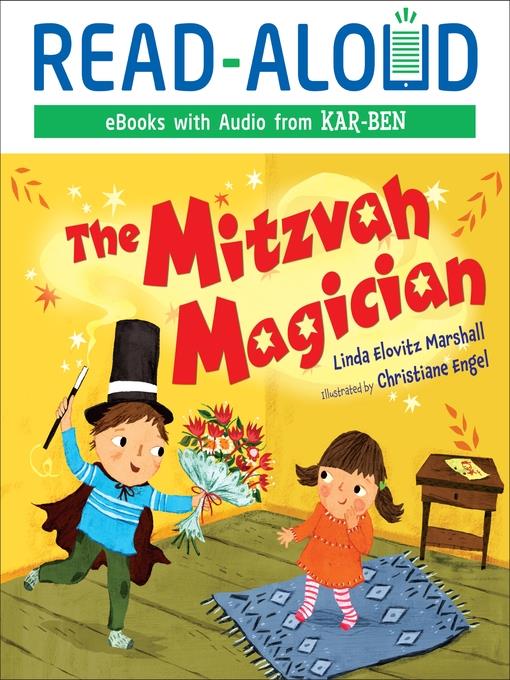
The Mitzvah Magician
فرمت کتاب
ebook
تاریخ انتشار
2014
Reading Level
0-1
ATOS
2.2
Interest Level
K-3(LG)
نویسنده
Christiane Engelشابک
9781467700634
کتاب های مرتبط
- اطلاعات
- نقد و بررسی
- دیدگاه کاربران
نقد و بررسی

August 20, 2012
Let other magicians have their "abracadabras," Gabriel discovers that the most effective incantation draws on his religious heritage: "One-wish! Two-wish! JEW-ISH!" Saying those words inspires Gabriel to use his "magical" powers for a mitzvahâHebrew for a good deed (like cleaning up his messes or creating a conciliatory surprise for his baby sister). Never mind that it was some less-than-good deeds on Gabriel's part (making the messes in the first place, teasing his sister so that the conciliatory act was necessary) that initially earned him a time out. Younger readers who are embracing their Jewish identity right make Marshall's (Talia and the Rude Vegetables) magic words their new catchphrase, and there's a lot to like in Engel's (Ooh La La Polka-Dot Boots) portrayal of the jaunty caped and top-hatted hero and his loving, firmly grounded Jewish household. Whether this moral tale has appeal beyond religious school-story hours will depend on readers' tolerance for the chirpy earnestness ("He thought and thought and thought some more") that pervades the text. Ages 3â8.

March 1, 2013
PreS-Gr 2-Gabriel's overzealous wand-waving gets him into trouble when he plays magician: he knocks things over and pokes his sister in the tummy. Mom helps him redefine the role of magician. "Good magicians do things that make people happy, not sad. They do mitzvot-that's a Jewish word for good deeds." Mulling it over in time out, Gabriel comes up with new magic words, "One-wish! Two-wish! Jew-wish!" and acts quickly to magically surprise his family with a clean house and yummy treat. While not all readers may agree that a magician's role is to do good deeds, in this context the "magic" angle makes it fun to do good. The simplified definition of "mitzvot" (technically, biblical commandments) is appropriate for young readers, especially the non-Orthodox Jews represented in the bright and blocky paintings. Jewish families and educators will welcome this title for its reinforcement of the mitzvah concept.-Heidi Estrin, Congregation B'nai Israel, Boca Raton, FL
Copyright 2013 School Library Journal, LLC Used with permission.

August 1, 2012
Whenever Gabriel the great magician commands "Presto Magico," a small disaster occurs. His magic wand is his tool of choice to empty a glass and make his sister disappear. But to achieve these ends, he knocks over the glass and pokes his sister. Mom gives him a time out and sets him to thinking about using his magic to do mitzvot, or good deeds. He decides that his magic needs some "Jewish words," so he comes up with "One-wish! Two-wish! Jew-wish!" as his new mantra. He carefully cleans the mess in the kitchen, puts his toys away and sets the table for snack time. With waves of his wand and his new magic words, he astonishes his mother with the amazing transformation and a new purpose for his magic. Marshall evokes gentle humor in this tale of a very believable little boy whose infatuation with a new toy leads to overzealous enthusiasm followed by remorse and creative atonement. The introduction of key Yiddish words (in both singular and plural) is accomplished seamlessly and serves to stress the universality of this family's experiences rather than emphasizing any cultural differences. (Though it's too bad the text does not correctly cite the language as Yiddish, instead of "Jewish.") Engel's brightly hued, delightfully detailed illustrations ably capture the action while maintaining a slightly skewed playfulness that is enhanced by the casual typeface, coloring and spacing of the text. Abracadabra! Lovely magic indeed. (Picture book. 3-8)
COPYRIGHT(2012) Kirkus Reviews, ALL RIGHTS RESERVED.

























دیدگاه کاربران